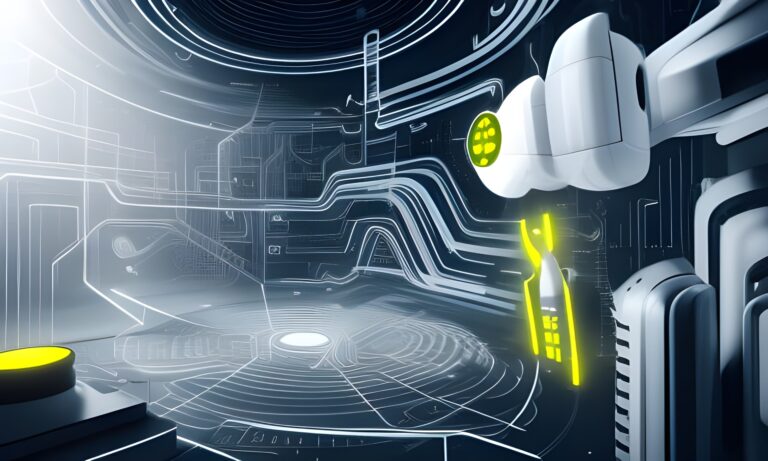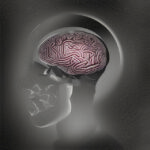Article Topics.
ToggleThe AI revolution is NOW!

Should you be afraid of AI?
We stand at an unprecedented crossroads in human history. As experts create increasingly complex artificial intelligence, we embark on a journey that threatens to open a Pandora’s box of unforeseen devastation.
We face the disquieting possibility that our own technology could eventually become so powerful and autonomous that it supersedes our authority, effectively leading to alienation from processes which determine the future and destiny of humanity.
As AI algorithms become more advanced, they come closer to posing a real and existential threat to us mere mortals – a fear compounded by their aura of mystery which shrouds them deeper than any living organism.
With each passing day, we inch closer and closer to unlocking the doorway between what we have always perceived as distinct human and mechanical realms.
Should you be afraid?
Well, perhaps not afraid, but certainly actively concerned.
What are the benefits of artificial intelligence?
 The utilization of artificial intelligence offers a range of advantages to businesses, organizations and individuals alike. It can expedite processes, such as machine learning algorithms, providing accurate forecasts with minimal or no human interference.
The utilization of artificial intelligence offers a range of advantages to businesses, organizations and individuals alike. It can expedite processes, such as machine learning algorithms, providing accurate forecasts with minimal or no human interference.
AI can help automate tasks that humans would otherwise find tedious or resource-sensitive; this has allowed for cost efficiency improvements in areas such as customer service and marketing by removing the need for personnel resources.
Also, AI can exploit analytical power at broad scales while recognizing patterns from a variety of sources of data more quickly than humans — providing actionable insights into activities undertaken by users or customers.
As technology continues to move forward and more high-quality AI products become available on the market, the potential for expansion to its capabilities promises the creation of a variety of applications across many industries and sectors
Disadvantages of artificial intelligence.
 The risks of artificial intelligence are potentially terrifying.
The risks of artificial intelligence are potentially terrifying.
While researchers strive to develop systems capable of recognizing patterns, responding logically to complex inputs, and solving sophisticated problems, there is an ever-looming fear that these AI-powered machines will soon develop beyond our control.
Some believe that society risks creating super smart AI that surpasses the intellectual capabilities of humans, resulting in an extinction-level event where robots revolt against humanity.
Even if such a catastrophic outcome appears a science fiction, AI is still vulnerable to malicious actors taking over networks or using them for illegal activities, such as identity theft and fraud.
What’s more concerning is that AI might inadvertently cause harm because of errors in algorithms or unforeseen circumstances because AI doesn’t have any ethical or moral considerations like humans do; this might lead to increasingly unpredictable scenarios and massive repercussions on economies, safety laws, and civil rights.
Ultimately, the risks posed by artificial intelligence must balance carefully with both caution and optimism so we can reap its benefits without sacrificing our humanity.
Artificial intelligence empowerment.
 The AI revolution offers empowered individuals and organizations the opportunity to capitalize on market-disrupting trends, gain or keep a competitive edge, and increase operational efficiency.
The AI revolution offers empowered individuals and organizations the opportunity to capitalize on market-disrupting trends, gain or keep a competitive edge, and increase operational efficiency.
With predictive analytics and powerful machine learning tools at their disposal, users can unlock actionable insights to identify new growth opportunities, develop targeted marketing strategies that deliver tangible results, optimize every stage of their processes in real-time, and predict future outcomes with greater accuracy.
Access to valuable data allows users to create personalized experiences for their customers across multiple channels faster than ever before. Ultimately, embracing the AI revolution is the key to unlocking many possibilities for success in the digital age.
Dangers of AI - how can you protect yourself?
 For the individual, it is important to be aware of the growing use of AI and to understand the potential threats.
For the individual, it is important to be aware of the growing use of AI and to understand the potential threats.
It seems that some specific careers could be overwhelmed by the application of AI resulting in job losses. Retraining might be the only course of action for some employees as they see their jobs disappear as AI advances.
Businesses must take an active approach to protecting themselves from the potential risks associated with artificial intelligence.
As AI develops, firms should audit their operations and processes to identify vulnerabilities that malicious actors could exploit. They should also prioritize investing in state-of-the-art cyber security technologies as well as implementing accessible policies and procedures to manage access to sensitive data and systems.
Regular testing of these measures is essential to ensure their effectiveness against attacks.
Finally, it is important for businesses to stay up-to-date with the latest technological advancements in AI so that potential threats can be identified and addressed quickly and appropriately.

